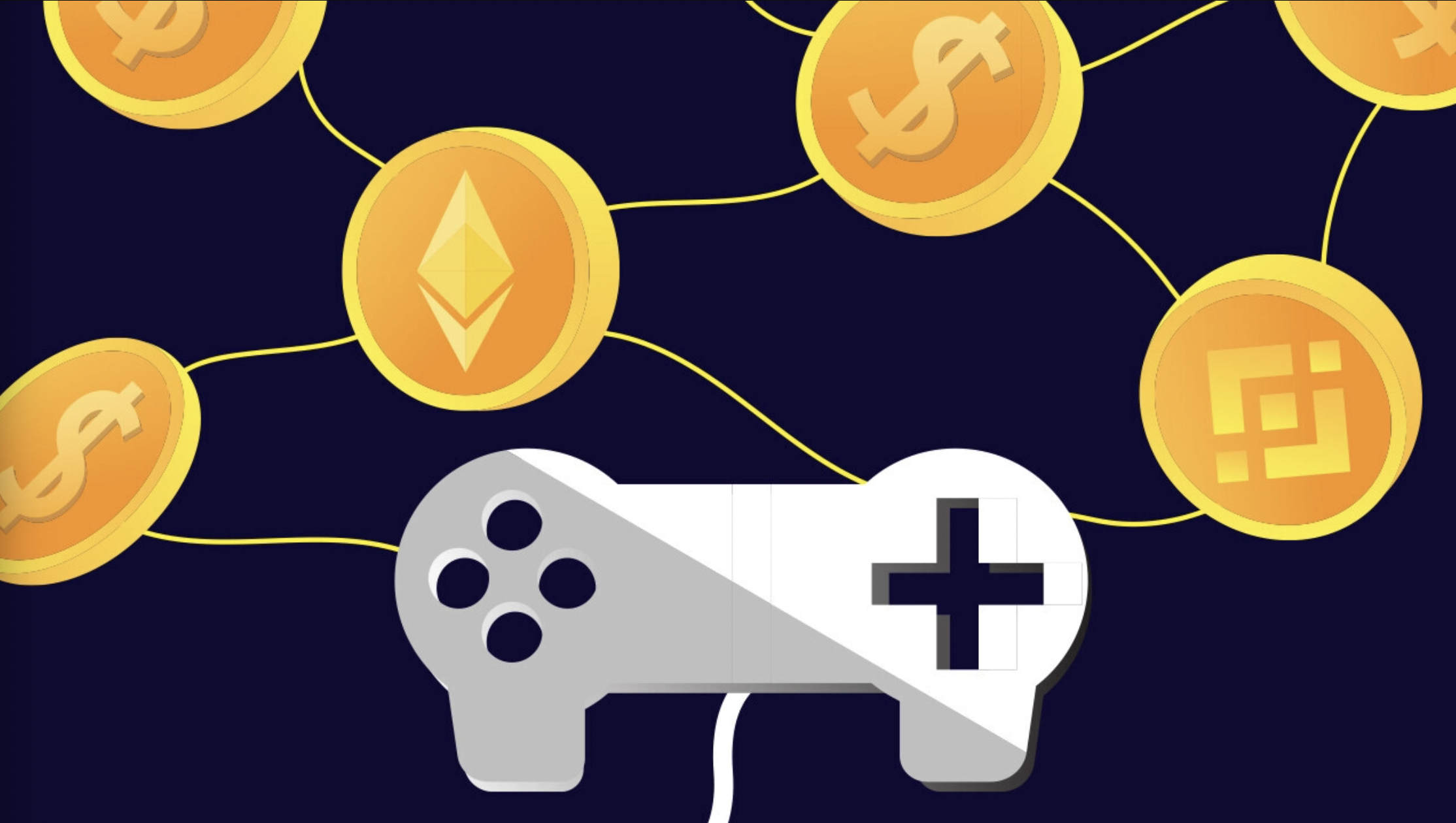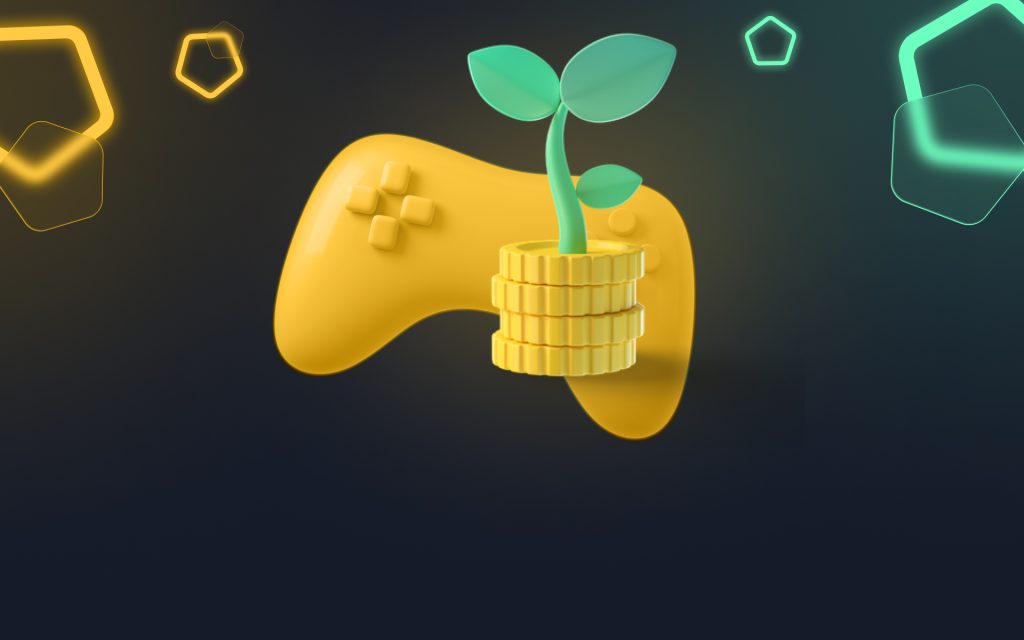
James Carter
The Revolution of Blockchain Gaming Tokens: Unlocking a New Era of Gaming

In recent years, the fusion of blockchain technology and also gaming has given rise to a groundbreaking phenomenon known as blockchain gaming tokens. This emerging trend is revolutionizing the gaming industry, offering players unprecedented ownership and also control over in-game assets, enhanced transparency, and exciting new gameplay mechanics. In this article, we delve deep into the world of blockchain gaming tokens, exploring their definition, characteristics, use cases, benefits, challenges, real-world examples, and future outlook.
Understanding Blockchain Technology
To comprehend the significance of blockchain gaming tokens, it is essential to grasp the fundamentals of blockchain technology. At its core, a blockchain is a decentralized, immutable, and also transparent ledger that records transactions in a chronological order. Key features such as decentralization, security, and smart contracts contribute to the integrity and efficiency of blockchain systems. Smart contracts, in particular, play a vital role in blockchain gaming by automating and enforcing the rules of gameplay, ensuring fair and transparent interactions.
Overview of Gaming Tokens
Gaming tokens, in the context of traditional gaming, have long served as also digital representations of value within game ecosystems. However, blockchain gaming tokens elevate this concept to a new level. Blockchain gaming tokens are digital assets built on blockchain platforms, allowing for secure, peer-to-peer transactions, ownership verification, and seamless integration across various games and also platforms. Unlike traditional gaming tokens, blockchain gaming tokens can represent unique, non-fungible assets, known as non-fungible tokens (NFTs), opening up exciting possibilities for collectibles and in-game assets.
Characteristics of Blockchain Gaming Tokens
Decentralization and Peer-to-Peer Transactions:
Blockchain gaming tokens eliminate the need also for intermediaries, enabling direct peer-to-peer transactions between players. This decentralization fosters a more inclusive and also player-centric gaming ecosystem, empowering individuals to freely trade and transfer assets.
Security and Immutability of Blockchain Records:
Through the use of cryptographic algorithms and distributed consensus mechanisms, blockchain gaming tokens ensure the security and immutability of transaction records. Additionally this enhances trust among players, minimizing the risk of fraud or manipulation.
Interoperability and Cross-Platform Compatibility:
One of the standout features of blockchain gaming tokens is their ability to operate across multiple games and also platforms. Additionally this interoperability allows players to utilize their tokens in different games, providing a seamless and consistent user experience.
Ownership and Control of In-Game Assets:
Additionally with blockchain gaming tokens, players truly own their in-game assets. These assets are tokenized and also stored on the blockchain, granting players complete control and the ability to transfer or trade their assets as they see fit.
Transparency and Fairness in Gameplay:
Blockchain technology introduces a new level of transparency to gaming. All transactions and also interactions recorded on the blockchain are visible to all participants, ensuring fairness, and combating cheating or fraudulent activities.

Use Cases and Applications
Collectible and Non-Fungible Tokens (NFTs):
Blockchain gaming tokens have given rise to a booming market for collectible NFTs. These unique digital assets, often representing rare items or characters, can be bought, sold, and traded on specialized platforms, offering players a new dimension of ownership and value.
Tokenized In-Game Assets and Virtual Property:
By tokenizing in-game assets and virtual property, blockchain gaming tokens enable players to have verifiable ownership of their virtual possessions. This opens up possibilities for players to monetize their virtual assets and create dynamic player-driven economies.
Token-Based Rewards and Incentives:
Blockchain gaming tokens can be used to incentivize and reward players for their achievements or participation. Tokens can be earned through gameplay, completing quests, or contributing to the community, fostering a sense of engagement and loyalty among players.
Token Economies and Player-Driven Economies:
With the introduction of blockchain gaming tokens, player-driven economies can thrive within virtual worlds. Players can create their own markets, establish prices for in-game assets, and participate in economic activities, fostering a dynamic and immersive gaming experience.
Decentralized Autonomous Organizations (DAOs) in Gaming:
Blockchain technology enables the creation of decentralized autonomous organizations (DAOs) within gaming ecosystems. DAOs are self-governing entities that operate based on predefined rules and smart contracts, allowing players to participate in collective decision-making processes and shape the future of their gaming communities.
Benefits and Advantages
Enhanced Ownership and Control for Players:
Blockchain gaming tokens empower players with true ownership and control over their in-game assets. This paradigm shift eliminates the risk of assets being lost or arbitrarily controlled by game developers, giving players a sense of autonomy and value in their gaming experiences.
Tradable and Liquid In-Game Assets:
The tokenization of in-game assets creates a liquid market where players can freely buy, sell, and trade their virtual possessions. This liquidity enhances the value of in-game assets, providing players with opportunities for investment and financial growth within gaming ecosystems.
Increased Transparency and Trust:
Transparency is a cornerstone of blockchain technology, and it extends to blockchain gaming tokens. All transactions and interactions are recorded on the blockchain, visible to all participants. This transparency fosters trust among players, as they can verify the authenticity and history of assets and transactions.
Opportunities for Decentralized Governance:
Blockchain gaming tokens open up avenues for decentralized governance models within gaming communities. Through DAOs and community-driven decision-making processes, players can actively participate in shaping the rules, policies, and direction of their favorite games, creating a more inclusive and democratic gaming ecosystem.
Potential for Innovative Gameplay Mechanics:
The integration of blockchain gaming tokens unlocks new possibilities for innovative gameplay mechanics. For example, players can earn tokens by achieving certain milestones, unlock exclusive content, or participate in decentralized tournaments and competitions, adding depth and excitement to the gaming experience.
Challenges and Considerations
Scalability and Transaction Costs:
Scalability remains a significant challenge for blockchain technology. As gaming ecosystems expand, the capacity to handle a high volume of transactions becomes crucial. Additionally, transaction costs, such as gas fees, can hinder the widespread adoption of blockchain gaming tokens, especially for players with limited resources.
User Experience and Adoption Barriers:
Blockchain technology can be complex for mainstream users to understand and navigate. The user experience must be seamless, intuitive, and accessible to attract a broader audience. Simplifying the onboarding process and enhancing user interfaces are key considerations for the successful adoption of blockchain gaming tokens.
Regulatory and Legal Considerations:
The integration of blockchain gaming tokens raises regulatory and legal questions. Different jurisdictions may have varying regulations regarding digital assets, securities, and taxation. Collaborating with regulatory bodies and ensuring compliance with relevant laws is essential for the sustainable growth of blockchain gaming tokens.
Security Risks and Vulnerabilities:
Despite the inherent security features of blockchain technology, there are still potential vulnerabilities and risks. Smart contract bugs, hacking attempts, and phishing attacks can compromise the integrity of gaming ecosystems. Robust security measures, code audits, and continuous monitoring are necessary to protect players’ assets and ensure a safe gaming environment.
Interoperability Challenges in Multi-Platform Gaming:
Achieving seamless interoperability across different gaming platforms and blockchains can be technically challenging. Standardization efforts, protocols, and cross-chain solutions need to be developed to enable the seamless transfer and utilization of blockchain gaming tokens across various gaming environments.
WATCH THE VIDEO BELOW.
Real-World Examples
CryptoKitties:
CryptoKitties, launched in 2017, is one of the earliest and most prominent examples of blockchain gaming token. It introduced the concept of NFTs to the mainstream audience, allowing players to collect, breed, and trade unique digital cats. Each CryptoKitty is an NFT represented by a blockchain token, providing verifiable ownership and scarcity.
Axie Infinity:
Axie Infinity, launched in 2018, has gained immense popularity as a blockchain-based game that combines elements of strategy, collecting, and battling creatures called Axies. Players can own, breed, and trade Axies using blockchain gaming token. The game has a vibrant marketplace where players can buy and sell Axies, creating a robust player-driven economy.
Decentraland:
Decentraland is a virtual reality (VR) metaverse powered by blockchain technology. In this decentralized virtual world, players can purchase and own virtual land using blockchain gaming token called MANA. Users can build, create, and monetize their virtual experiences, fostering a vibrant and immersive community.
The Sandbox:
The Sandbox is a user-generated content platform and blockchain game where players can create, own, and monetize virtual assets and experiences. Through the use of blockchain gaming token called SAND, players can trade virtual land, assets, and participate in the governance of The Sandbox metaverse.
Gods Unchained:
Gods Unchained is a blockchain-based trading card game that utilizes blockchain gaming token for ownership and trading of digital cards. The game offers players true ownership of their cards, enabling them to buy, sell, and trade their assets on blockchain marketplaces.
Future Outlook and Conclusion
The integration of blockchain gaming token is transforming the gaming industry, empowering players with unprecedented ownership, control, and economic opportunities. As scalability and user experience challenges are addressed, we can expect blockchain gaming token to become more accessible and widely adopted. The potential for interoperability, decentralized governance, and immersive experiences within metaverses indicates an exciting future for blockchain gaming.
Regulatory frameworks
However, careful attention must be given to regulatory frameworks, security measures, and overcoming adoption barriers to ensure the sustainable growth of blockchain gaming token. By embracing innovation, collaboration between blockchain platforms and game developers, and prioritizing user experience, the gaming industry can harness the full potential of blockchain technology and redefine the way we play, trade, and engage with virtual worlds.
In conclusion, blockchain gaming token are revolutionizing the gaming landscape by providing players with enhanced ownership, transparency, and exciting new possibilities. As the industry continues to evolve, embracing blockchain technology and its inherent benefits will reshape the way we experience and interact with games, ushering in a new era of gaming that is decentralized, player-centric, and immersive.
Latest
Gaming
19 Apr 2024
Gaming
16 Jan 2024
Gaming
31 Aug 2023
Gaming
24 Jun 2023
Gaming
24 Jun 2023













